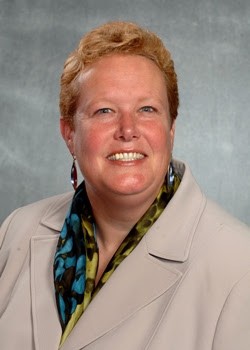Whether planner, supplier or attendee, you’ve probably been to a meeting or three that seemed like it was punched out with a cookie cutter. You know the ones: irrelevant opening keynote; PowerPoint education; regimented scheduling that begs for more one-on-one and break time; social events that seem more like a chore than an opportunity to mingle in an idea-rich environment.
If all of that sounds like one colossal drag, then meet Janet Sperstad, a meetings industry education, planning and speaking veteran who has jumped into the fray—a thinking cap for a helmet and the sword of knowledge as her weapon—to combat the status quo.
“It’s really about paying attention with purpose,” Sperstad says, describing her “Slow Meetings” concept, which she unveiled at the recent IMEX Frankfurt. “How are we helping our attendees pay attention to the key things we want them to, that they want to, and how do we do it so it activates the brain and it creates the experiences everyone wants, rather than create an experience that inhibits?”
Sperstad brings a wealth of knowledge to her Slow Meetings movement, which basically uses a neuroscience approach to spark meetings that fire on all the neural cylinders. She began her career in the association planner realm in 1986, moved on to organizing meetings for a Midwest beauty product distributor, and then started planning meetings for a Fortune 500 company before striking out on her own as the owner of a meetings and event planning company. In 2000 she entered the academic world, launching a degree program at Wisconsin’s Madison Area Technical College in 2000.
A meetings industry veteran, Sperstad has seen the good, bad and ugly of the discipline, and now strives to advance the attendee experience by using a scientific approach that correlates to the Slow Food movement transforming the world of cuisine.
“It’s a title that we use, whether it sticks or not,” she says, adding that the goal is really about slowing down and focusing on what you’re consuming. “Over the past year I’ve been having conversations about not just how to create deeper, more meaningful engagement, but creating moments that have a more enriched experience for people to draw on or be engaged—to have a better connection. How do we create experiences that have moments for a ‘super connect’ that really elicit people’s emotions and have anchors in long-term memory?”
To borrow a term from the well-being world, it’s all about “mindfulness,” having a focused engagement rather than an atmosphere of consumption.
“At the end of the day we don’t want them to walk away exhausted, we want them to walk away rejuvenated,” she says, adding that the thought process of analyzing numbers, decision-making and prioritizing can hinder the part of the brain that excels in innovation and creativity, such as the ideas that often seem to materialize from the ether when you’re in the shower or taking a walk. “Is the brain shutting down because it’s crucially thinking, or is it activating that space where it allows us to have more insights?”
Some low-cost strategies to achieve this, she says, include positive messaging in areas where breaks, lunches or receptions are held, or little notecards on tables that spark attendees to reflect on, say, five things they are grateful for. This activates the area of the brain that is the gatekeeper toward creativity, and creates a “toward state” that keeps fear at bay. Having breaks outside and offering areas where people can walk and contemplate in an area filled with positive messaging is also a boon to creativity.
“What people really crave are moments—real context and real authenticity,” Sperstad sums up. “What’s driving that is these moments for silence—mindfulness practices—things that help people change how they think because they’re using their brain resources differently.”




